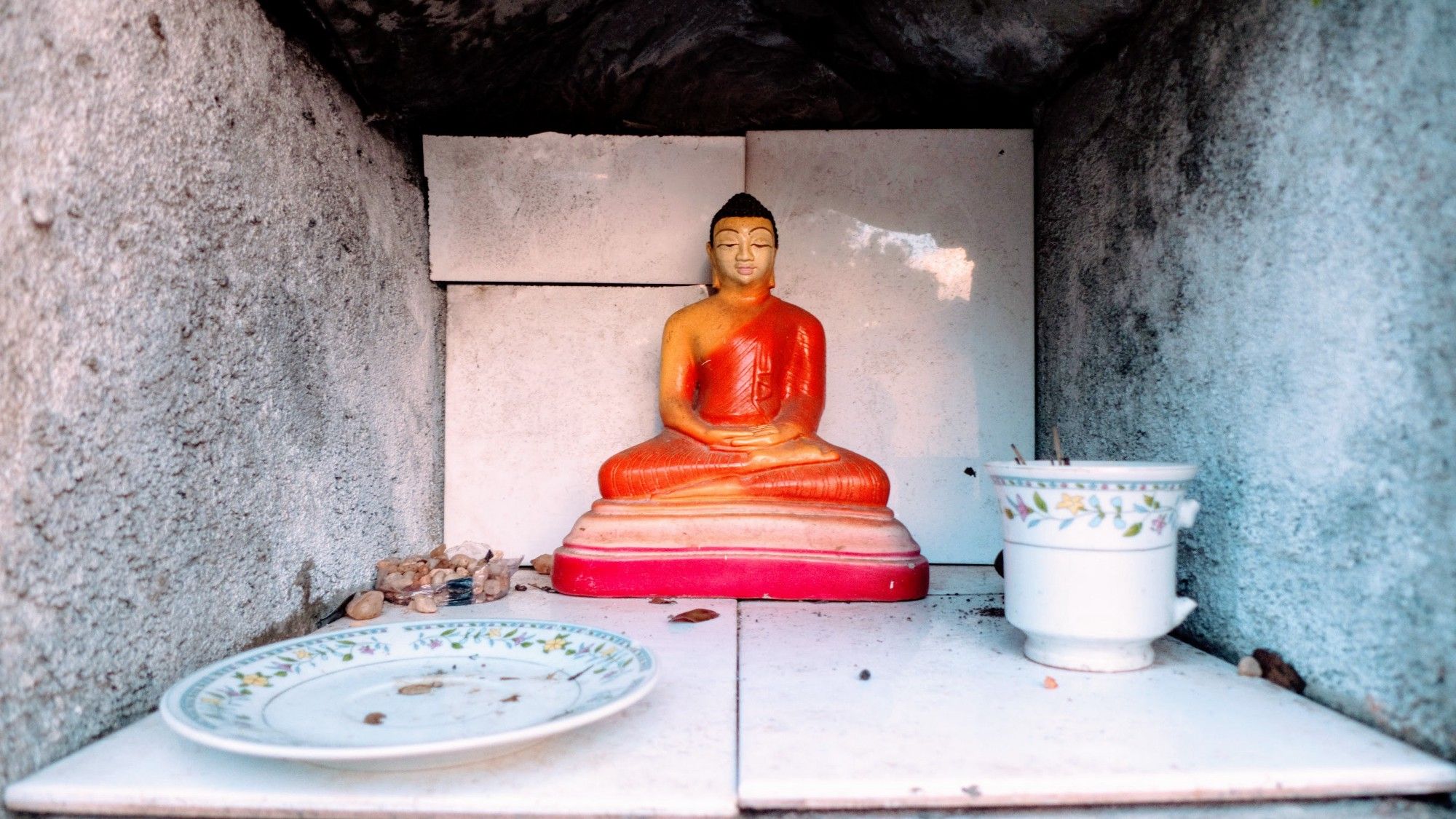How Intermittent Fasting Is A Buddhist Diet
Eating as monks do

When I went on a Buddhist retreat the hardest thing was eating. When you’re practicing mindfulness it’s not just meditation, you’re supposed to always be mindful — when walking, eating, even going to the bathroom. I could attempt everything, but eating always eluded me.
Ever since I was a child I’ve eaten like a hyena, like at any moment someone could take it away. My dad also. My wife finds it unattractive and I try to slow down, but it’s hard.
When I was at the retreat I had to pay attention to this. The desire to eat faster, to eat more. The cycle of satisfaction and dissatisfaction that is eating. It was enlightening I guess. I found it very difficult.
On a Buddhist retreat, you also only get two meals a day, both vegetarian. According to monastic tradition, monastics don’t eat after noon. To be honest, I never found the hunger part that hard, but I did miss an evening meal just to break up the boredom. A meditation retreat is a long encounter with boredom, with no relief from phones or even conversation.
I hadn’t thought about it that much until I heard about it and started intermittent fasting. Then I remembered. This is just a monastic diet.
The Mental Diet
Most of the western conversation about intermittent fasting is about weight loss and health. This doesn’t really factor into Buddhism at all. The point of a Buddhist diet is the point of Buddhist anything — to be mindful.
Not despising, not harming, restraint according to the code of monastic discipline, moderation in food, dwelling in solitude, devotion to meditation — this is the teaching of the Buddhas. (Dhammapada, Verse 185)
Moderation, restraint, this is all part of a mental diet, applied equally across life. You’re supposed to be thoughtful while walking, while talking, always striving to be present, on or off the mat. In practice, this means that eating a monastic meal is achingly slow.
I remember waiting patiently in line behind other patient (re: slow) people. Then slowly spooning the rice and vegetables, being aware of every movement of my arm and plate, all while my hungry monkey mind is like HURRY UP WE’RE HUNGRY MONKEY. Then you slowly walk to your table, and each spoon or mouth has to be thought about. The steps are laborious to even write, and I’m not even getting to the slow washing of plates.
Eating a Buddhist meal takes like an hour, and a lot of mental effort. You don’t really have room for more than two.
The other aspect is that monastics are supposed to be beggars. At a retreat, we all indirectly live off donations (which we also give), but a true monk does not buy or prepare food, they just go door to door with a bowl. They’re also not great company, for the reasons above. It’s like eating with a snail, to be honest. A monk is supposed to be detached from society, and dinner is the most social meal of all.
For example, I’m going out for dinner now, which breaks my fast. The very act of going out for a fun dinner with friends and wine is something a monk shouldn’t be doing. If they were begging at dinner-time they would likely be invited in, and then one thing leads to another.
The monastic life also starts and ends very early. We’d be up at the butt-crack of dawn to meditate, like 5 AM. I’d be freezing in the hills and struggling to stay awake. You’re then doing chores and manual labor before breakfast. Then back to meditating. Meditating is also hard. Doing ‘nothing’ is the hardest thing I’ve ever done. You have nothing to distract you, nothing to relax. The only respite is sleep (I had crazy vivid dreams), and by 5 o’clock you can’t wait to get to bed.
Hence you also just don’t have time for dinner. You’re out of sync with the world, and it’s supposed to be that way.
I intermittently fast today, years after going to this retreat, for health reasons. I never even connected it to that monastic diet until recently, but that’s essentially what I do. I’m vegetarian (for environmental reasons) and have somehow ended up back on a Buddhist diet without thinking about it.
I find it interesting how doing the ‘good’ thing can also turn out to be best for you and the world. I’m not sure that the early monks thought of this when laying out the monastic rules, but — like mindfulness — it ended up being something that hip western people rediscovered 2,500 years later.
Today intermittent fasting is a fad, but it’s been the Buddhist diet for thousands of years.